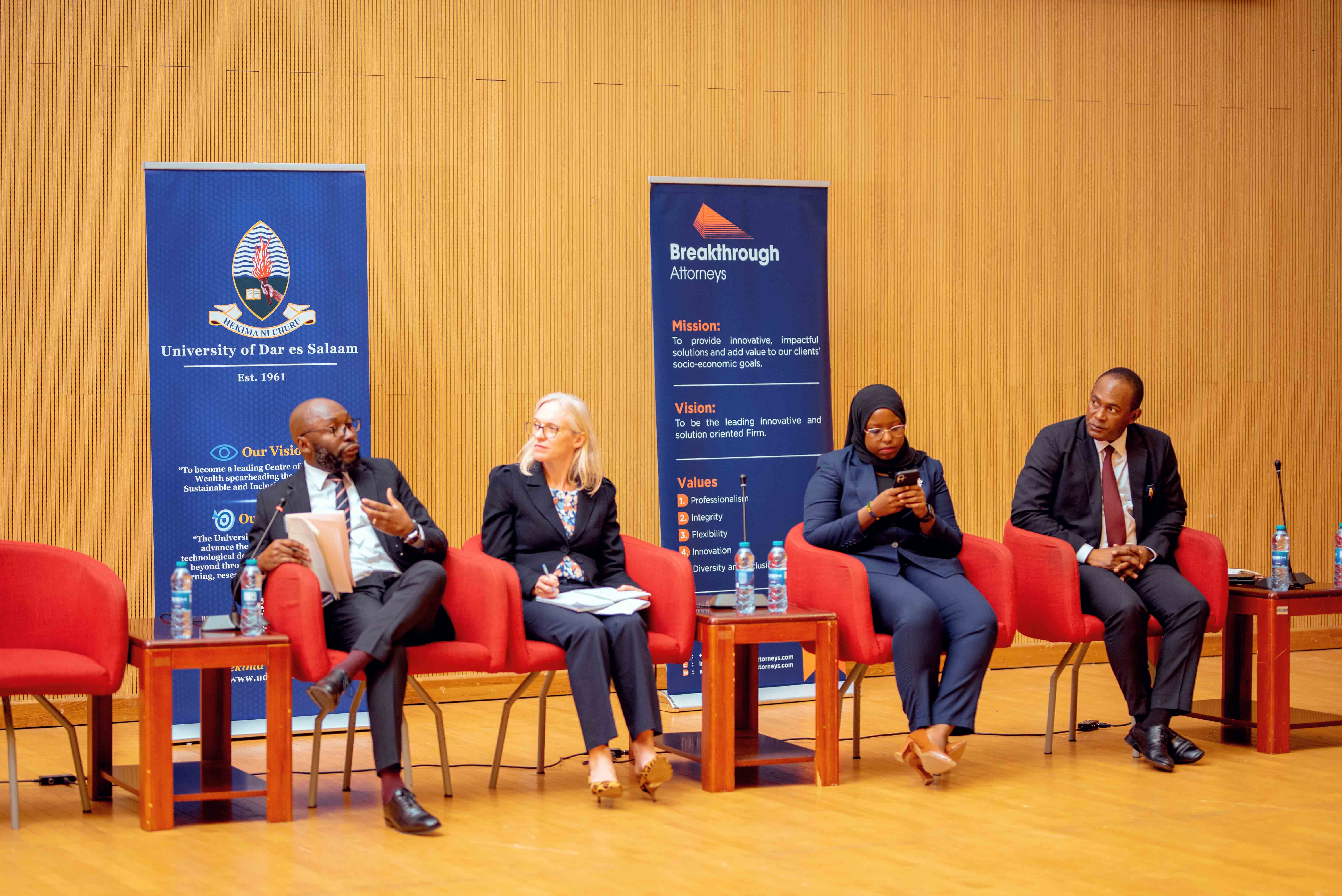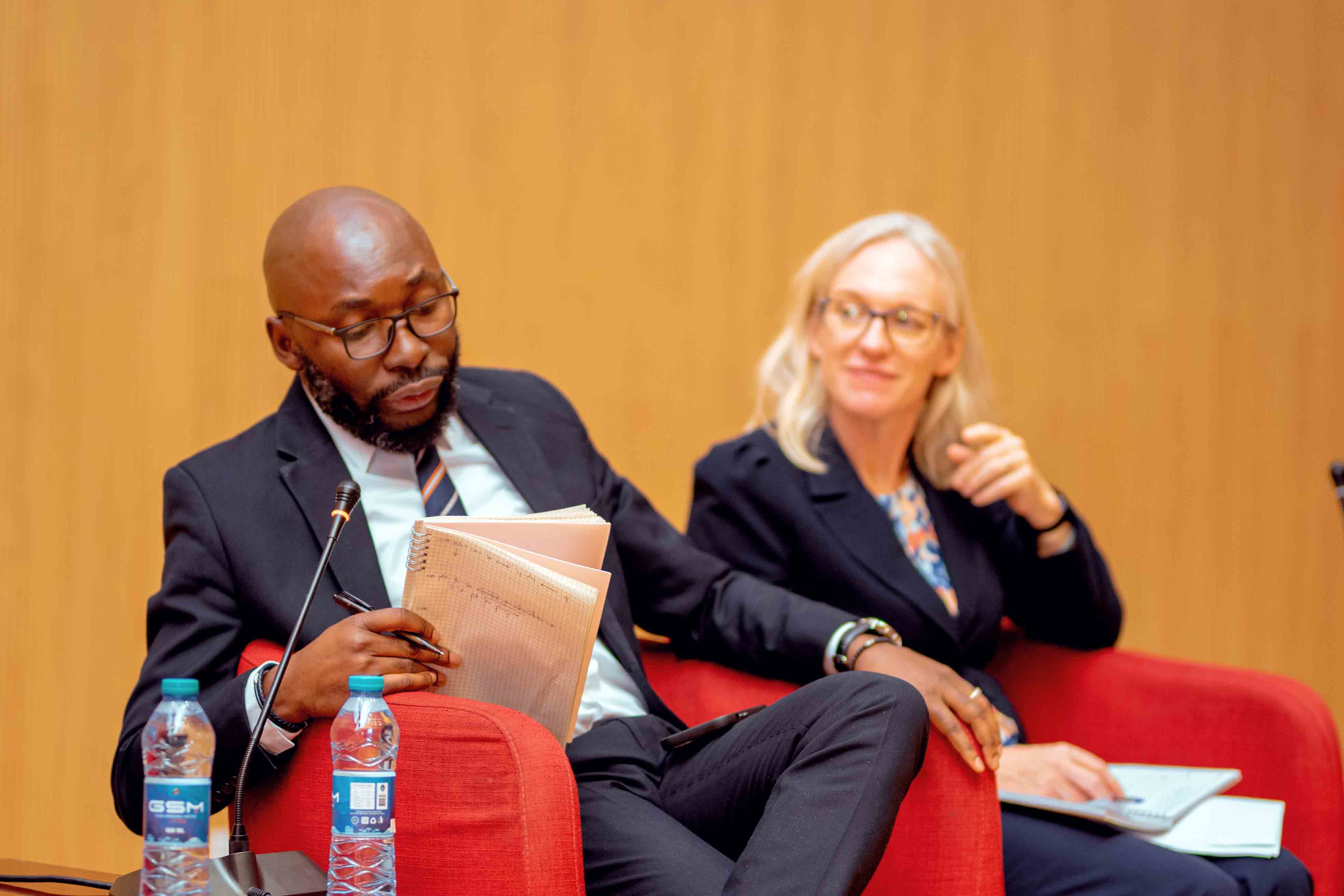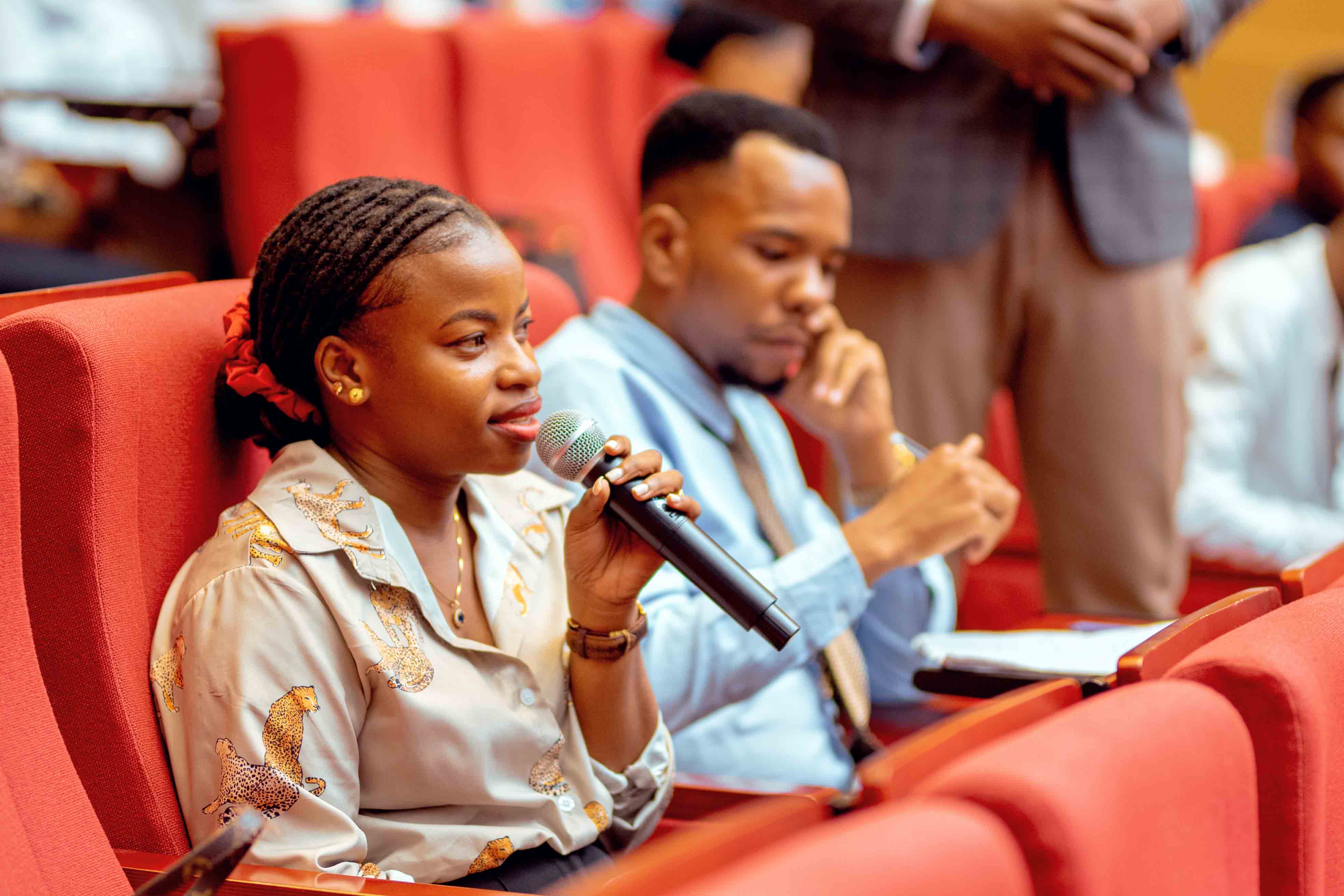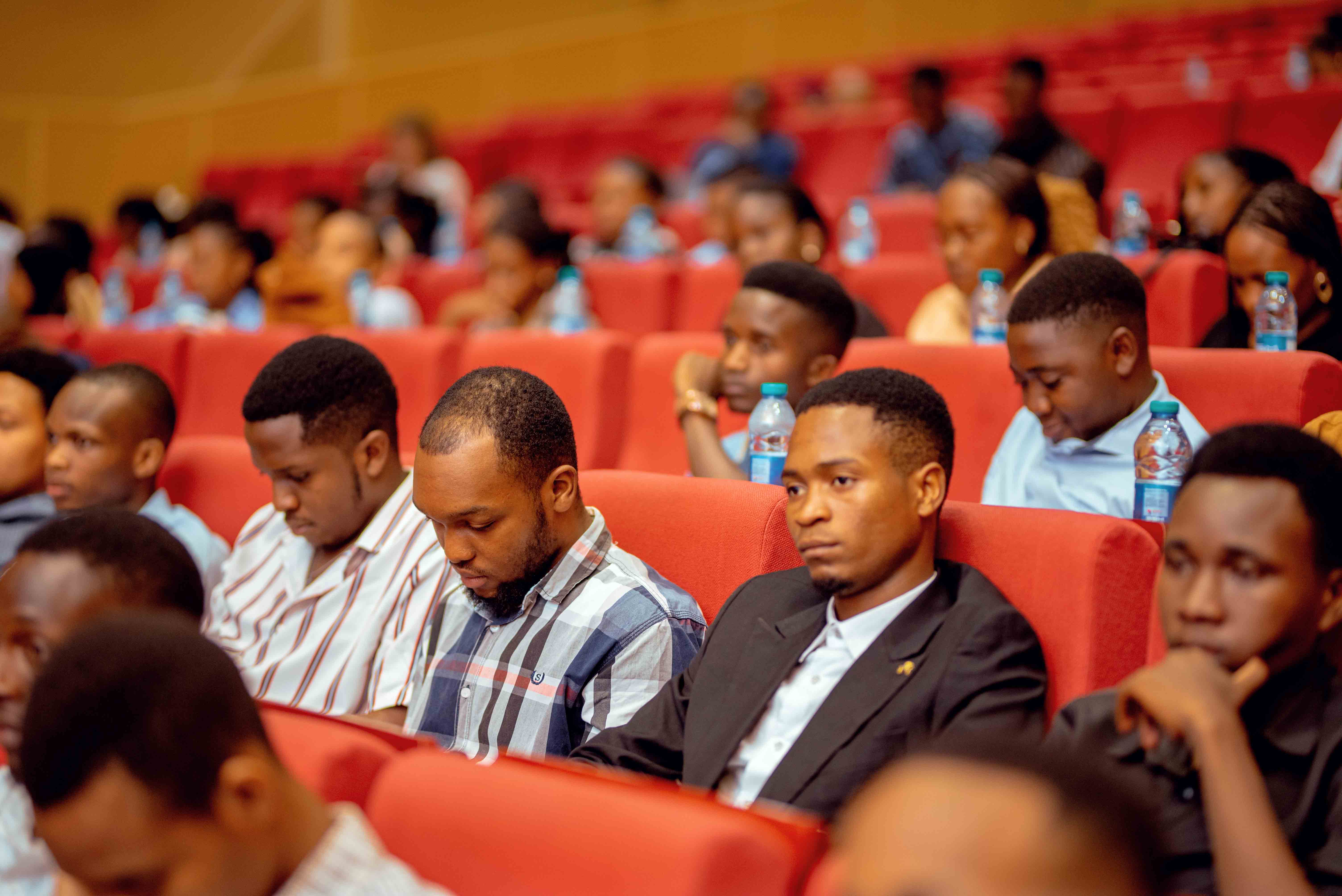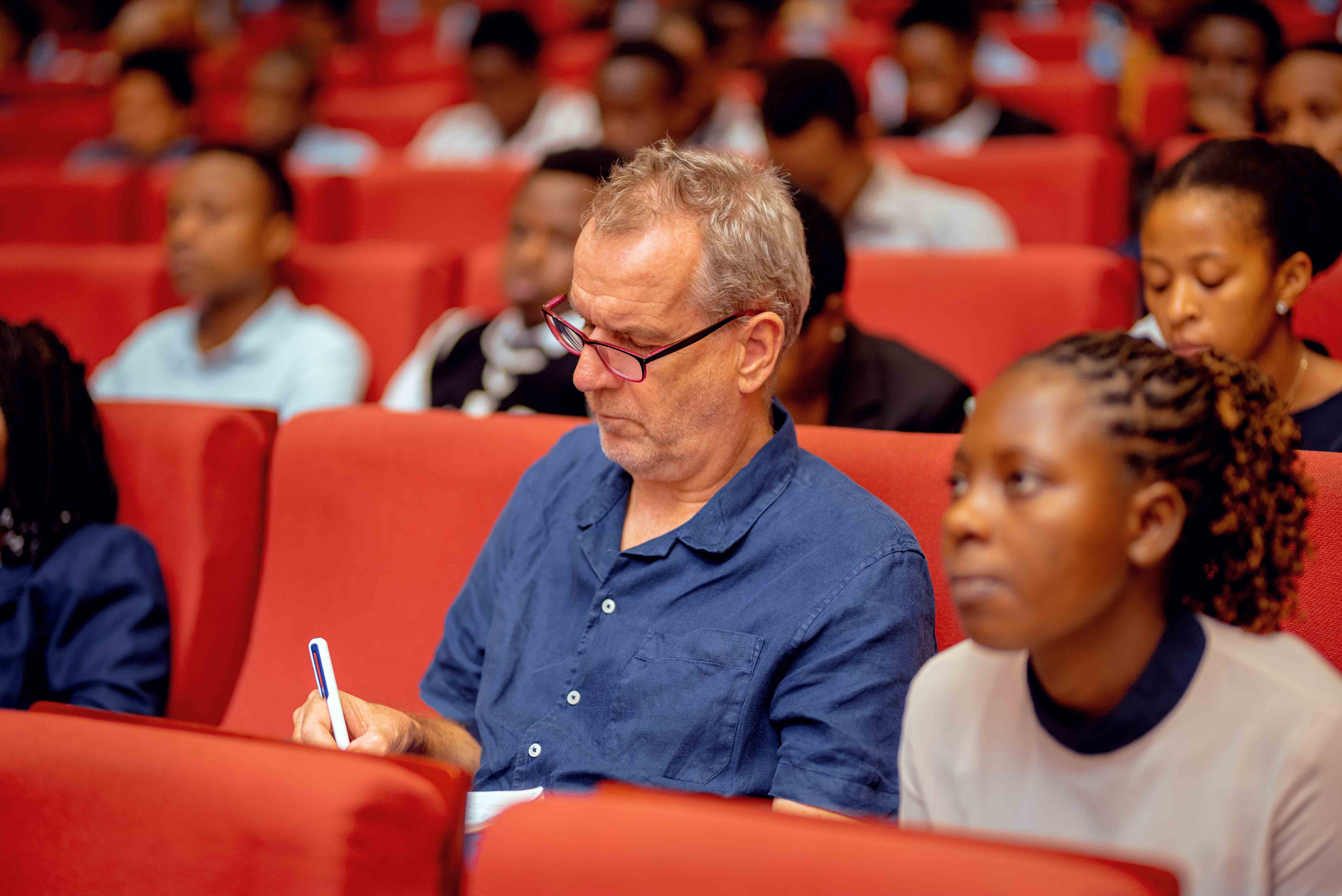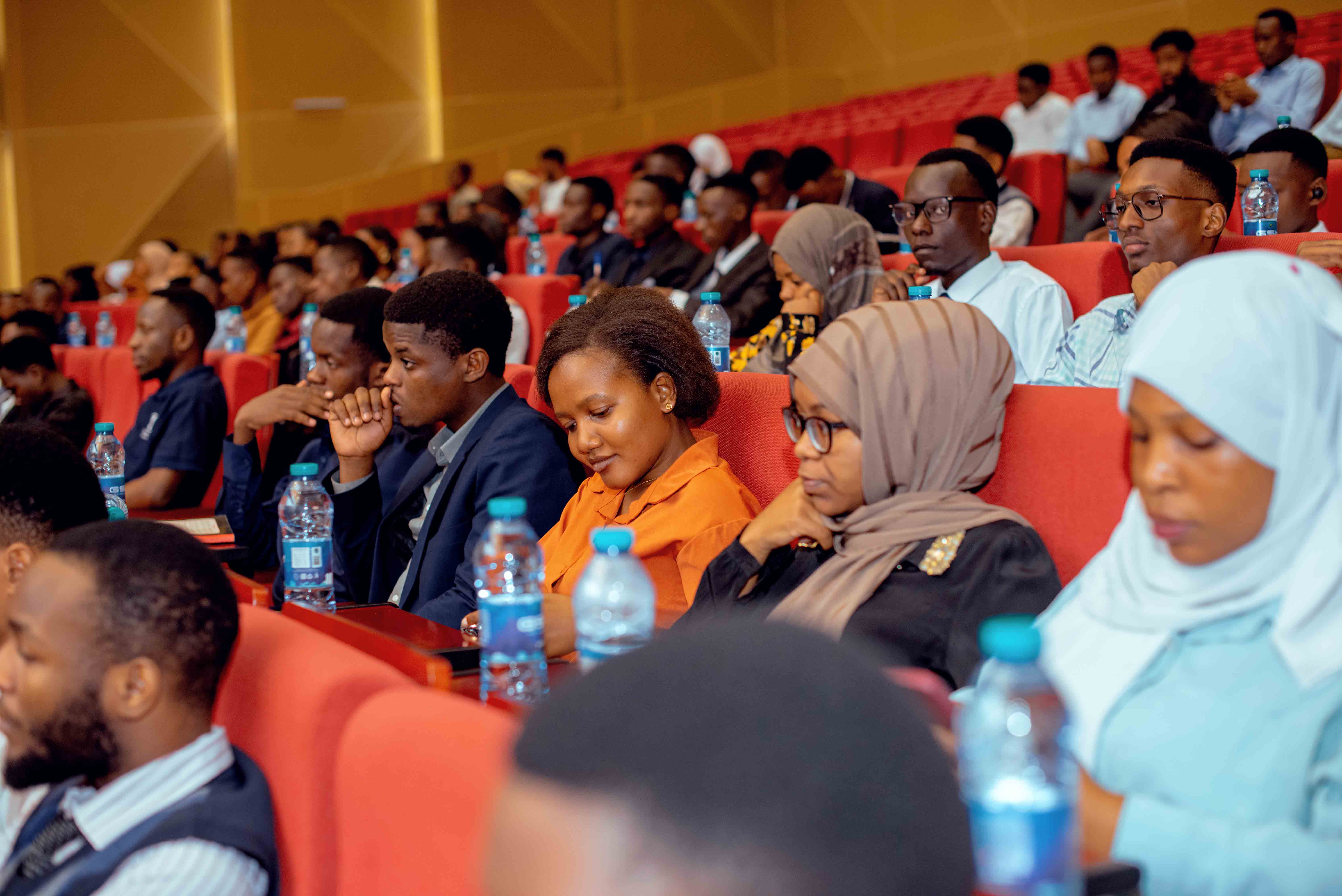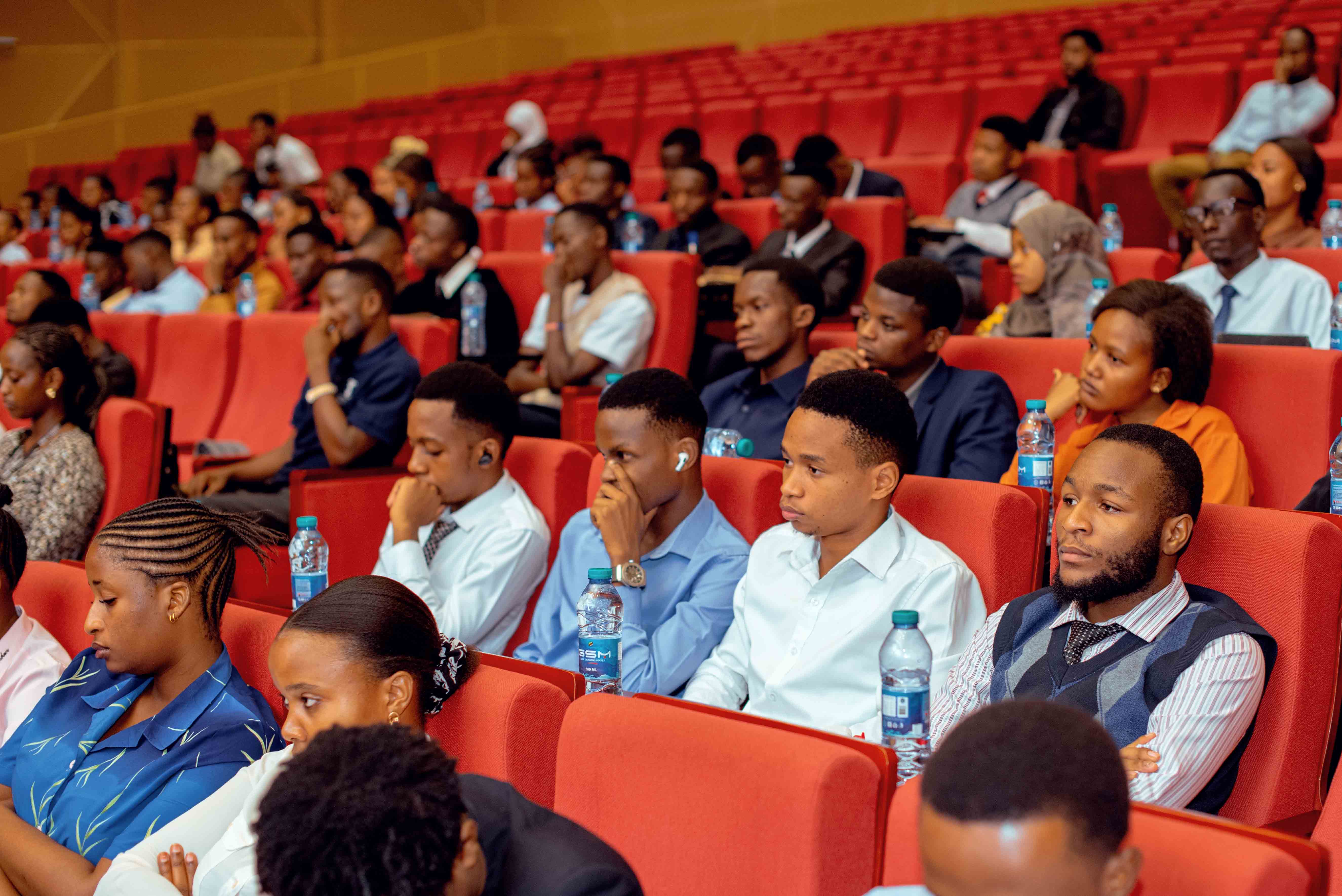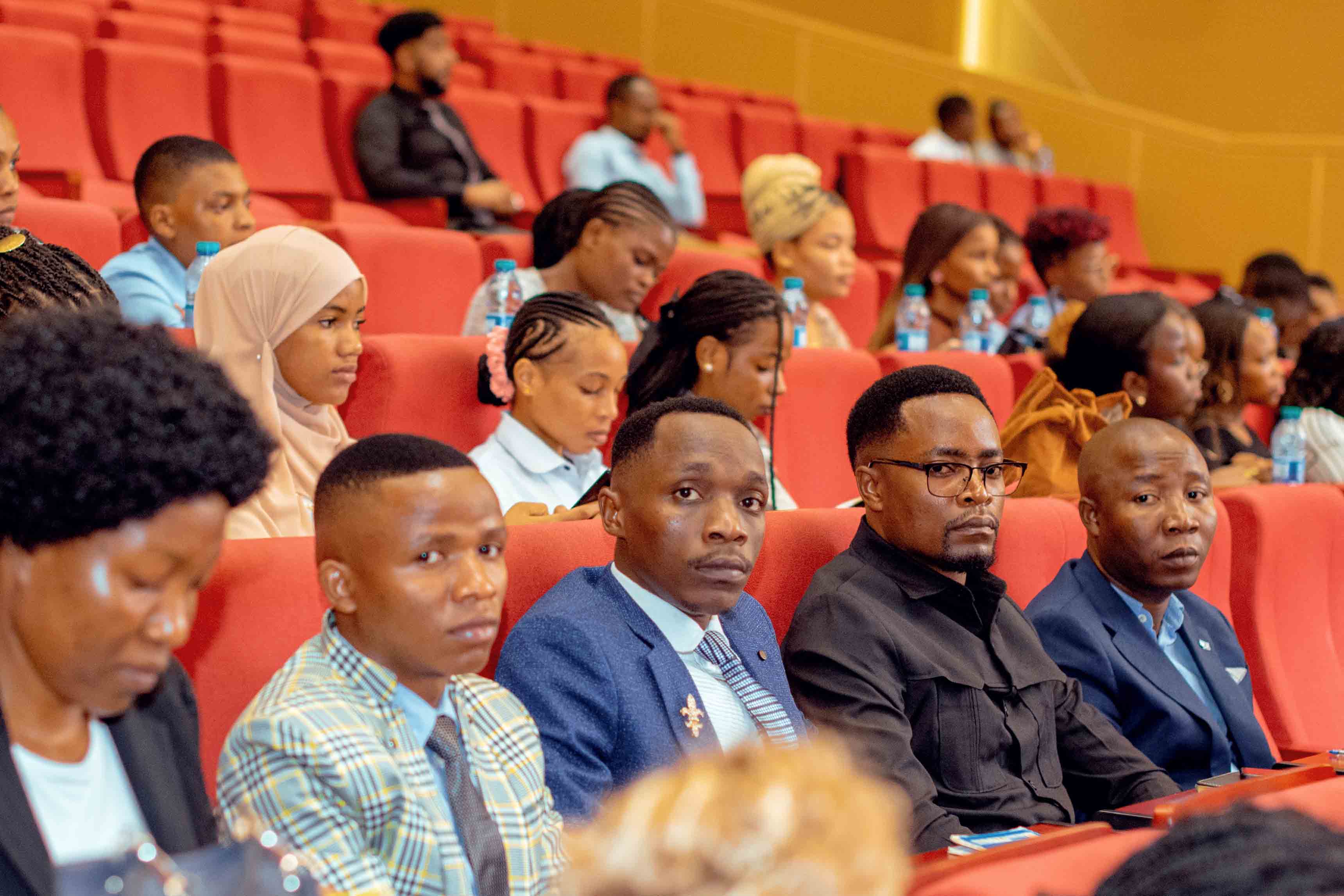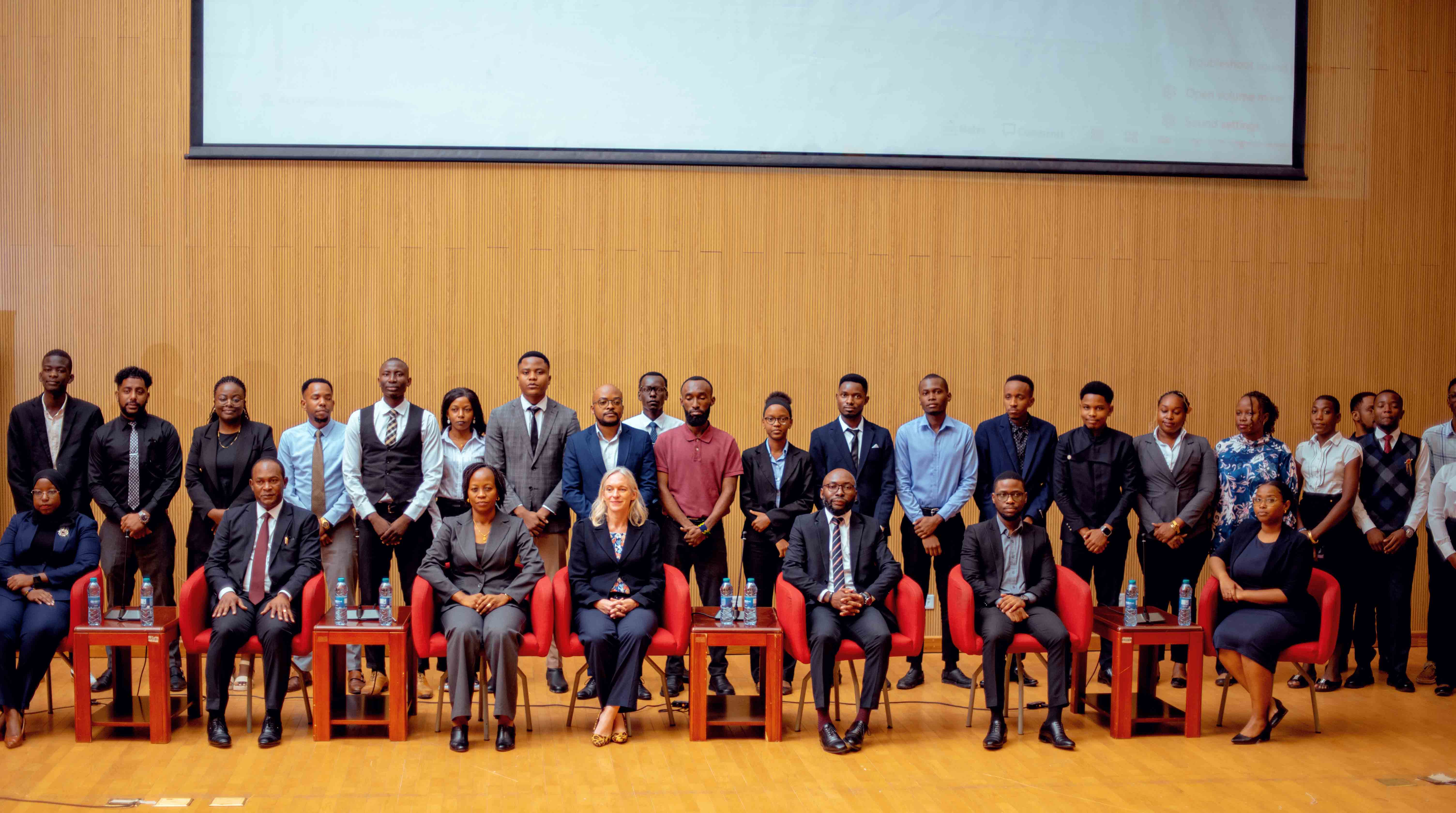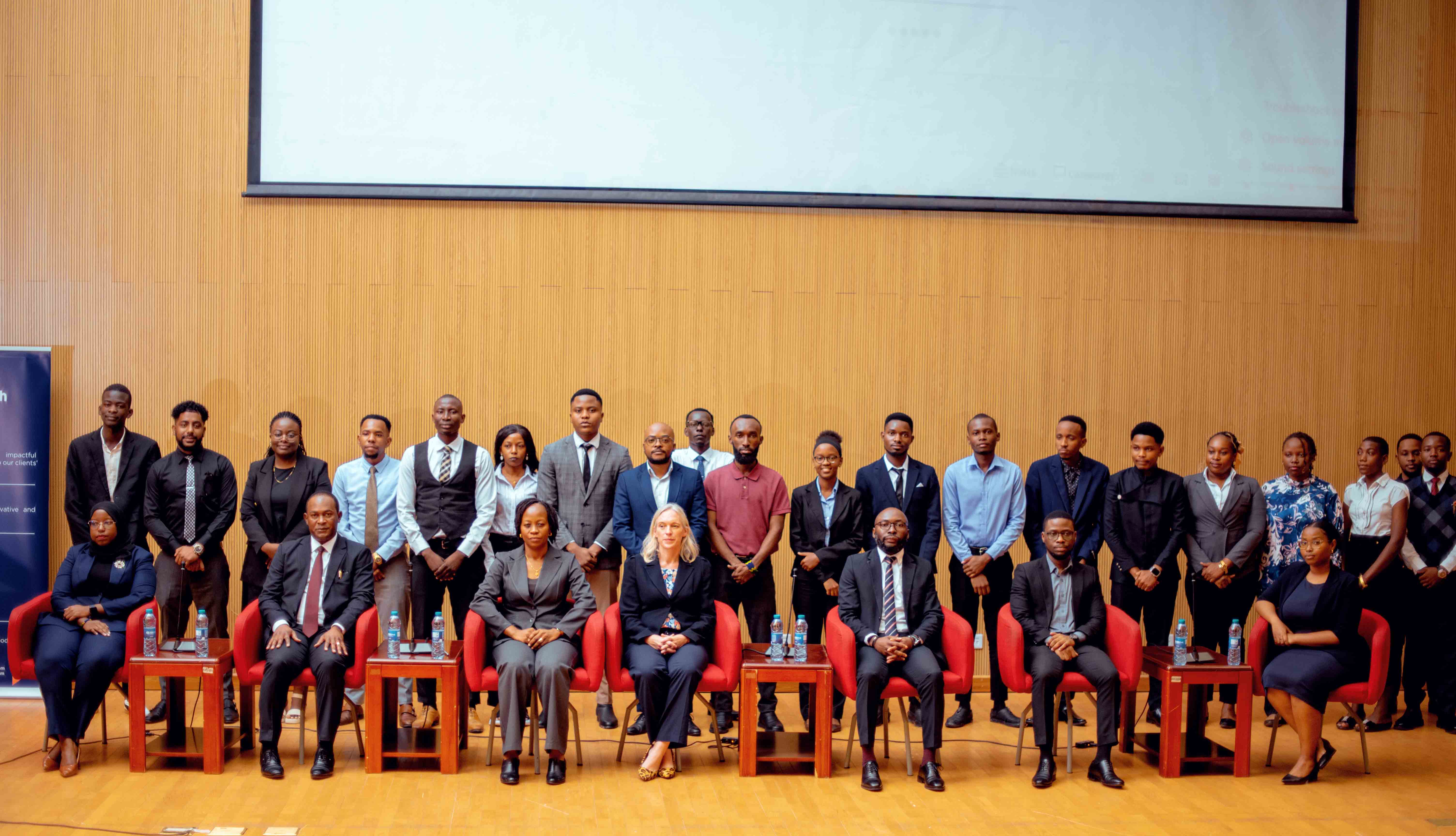Digital Frontiers and Legal Futures: Charting the Course of Law in the Age of Technology
By Cecilia Ngaiza and Jackson Isdory
In a rapidly evolving world where algorithms draft contracts and digital forensics solve complex cases, the University of Dar es Salaam School of Law (UDSoL), in collaboration with the University of Dar es Salaam Law Society (UDLS), hosted a landmark public lecture exploring the future of legal practice in the digital era.
Held on 20 May 2025 at the Mwalimu Julius Nyerere Mlimani Campus, the high-level event was themed “The Future of Legal Practice in the Digital Age” and brought together law students, academics, legal professionals, and international development partners to unpack the disruptive impact of digital technology on the legal landscape.
Officiating the event on behalf of the Deputy Vice Chancellor-Academic, Prof. Bonaventure Rutinwa, Prof. Flora Magige, Principal, College of Natural and Applied Sciences, called for a transformative shift in legal education to meet the demands of the digital age.
“Artificial intelligence, blockchain, and other emerging technologies are no longer distant threats or opportunities, they are here,” she said. “As educators, we must reimagine how we prepare the next generation of legal professionals: not only as interpreters of the law, but as agile problem-solvers in digital contexts.”
Her remarks framed the session as a critical dialogue on how innovation is not merely changing legal tools but redefining the core principles of legal practice, from privacy and ethics to access to justice.
The keynote address, delivered by Senior Counsel Kheri Mbiro of Breakthrough Attorneys, provided a deep dive into how technologies like artificial intelligence (AI), blockchain, and digital forensics are transforming legal systems and practice in Tanzania and beyond.
“Law firms must move from traditional service models to data-driven, client-focused platforms. This shift calls for a new generation of legal professionals: tech-savvy, ethically grounded, and innovation-ready,” Mbiro explained.
Drawing from practical case studies, he outlined how digital transformation is already reshaping legal frameworks, professional ethics, and client-attorney relationships in profound ways.
Panel Discussion: Global Perspectives, Local Relevance
A dynamic panel followed the keynote, featuring legal-tech experts from both Tanzania and abroad. Prof. Sarah Moffat Stephens, Deputy Director at the University of Sussex Centre for Law and Technology, emphasised the increasing operational use of AI in contract automation, legal research, and evidence analysis. “AI can expand access to justice, but without proper regulation, it risks reinforcing existing inequalities”.
Counsel Fatma Songoro, Head of the Technology, Digital Trade and Fintech Department at Victory Attorneys, tackled the ethical dimensions of legal tech. She said “As data becomes the new currency, legal ethics must evolve. We must strike a balance between innovation and safeguarding client trust and privacy”.
Senior Counsel Geofrey Dimoso of ALN Tanzania addressed the next generation of lawyers directly and urged: “The digital age will not wait for you to catch up, you either lead with knowledge or get left behind”.
Building Bridges: Academia Meets Industry
The lecture was also attended by representatives of the German development agency GIZ (Deutsche Gesellschaft für Internationale Zusammenarbeit), who expressed keen interest in deepening partnerships with UDSoL to support its digital transformation agenda.
“We see great potential in supporting the university’s digital transition. Events like these reaffirm our belief that universities are true incubators of innovation,” said a GIZ representative.
According to a post-event report by UDLS, the lecture produced several institutional benefits, including enhanced student understanding of emerging legal technologies; increased academic exposure to cutting-edge trends in legal-tech; opportunities for collaborative research, legal aid digitisation, and student mentorship; and strengthened dialogue between academia and the legal industry.
Mr. John Kisona, President of the University of Dar es Salaam Law Society, underscored the transformative nature of the event. “This was not just a learning moment, it was a turning point. We are committed to empowering legal scholars and practitioners with the tools to thrive in the 21st-century legal landscape”.
As the University of Dar es Salaam continues to position itself at the intersection of academic excellence and technological innovation, this lecture served as both a wake-up call and a roadmap for the future. Legal education, like the law itself, must remain adaptive, ethical, and forward-looking in the face of rapid digital transformation.


